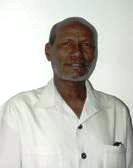
Politics of Djibouti takes place in a framework of a presidential representative democratic republic, whereby the executive power is exercised by the President and the Government. Legislative power is vested in both the Government and the National Assembly. The party system and legislature are dominated by the socialist People's Rally for Progress. In April 2010, a new constitutional amendment was approved. The President serves as both the head of state and head of government, and is directly elected for single six-year term. Government is headed by the President, who appoints the Prime Minister and the Council of Ministers on the proposal of the latter. There is also a 65-member chamber of deputies, where representatives are popularly elected for terms of five years. Administratively, the country is divided into five regions and one city, with eleven additional district subdivisions. Djibouti is also part of various international organisations, including the United Nations and Arab League.

Ismaïl Omar Guellé is a Djiboutian politician who has served as the President of Djibouti since 1999, making him one of the longest-serving rulers in Africa. He is often referred to by his initials, IOG.

Dileita Mohamed Dileita is a Djiboutian politician who was the prime minister of Djibouti from 7 March 2001 to 1 April 2013. He was vice-president of the People's Rally for Progress (RPP), the governing political party, until 2012. He also served as president of the Union for the Presidential Majority (UMP), the governing coalition. He was elected President of the National Assembly on 5 March 2023.

The People's Rally for Progress is a political party in Djibouti. It has dominated politics in the country since 1979, initially under the rule of President Hassan Gouled Aptidon. Today it is led by President Ismaïl Omar Guelleh and is in a coalition government with Front for the Restoration of Unity and Democracy (FRUD) and other parties. The RPP tends to hold more influence among the Issa population.
The National Democratic Party is a political party in Djibouti. It was founded as an opposition party in 1992 by Aden Robleh Awaleh, who remains the party's president. It was part of the ruling coalition in 2005, but has since rejoined the opposition against President Ismaïl Omar Guelleh.

Hassan Gouled Aptidon was the first President of Djibouti from 1977 to 1999.

The National Assembly, formerly known as the Chamber of Deputies, is the unicameral legislative branch of the government of Djibouti.

Aden Robleh Awaleh (1941 – 31 October 2014) was a Djiboutian politician and President of the National Democratic Party (PND). He was a member of the National Assembly of Djibouti.

The Djiboutian Civil War was a conflict in Djibouti, lasting from 1991 to 1994 and resulting in thousands of fatalities. The uneven power sharing between the Issas and the Afars led to the Civil War that ravaged the country for three years.

Parliamentary elections were held in Djibouti on 8 February 2008. There were 65 candidates running for the 65 seats in the National Assembly, with all of the candidates coming from the ruling coalition, the Union for the Presidential Majority (UMP). The opposition boycotted the election, and the UMP won all 65 seats.

Presidential elections were held in Djibouti on 8 April 2005. The incumbent President of Djibouti, Ismail Omar Guelleh, was re-elected to a second six-year term in an unopposed election.

Parliamentary elections were held in Djibouti on 10 January 2003 to elect the National Assembly of Djibouti. The ruling coalition of President Ismail Omar Guelleh won all 65 seats in the election, defeating an opposition coalition.

Presidential elections were held in Djibouti on 8 April 2011. Incumbent president Ismail Omar Guelleh was re-elected with 81% of the vote,defeating Mohamed Warsama Ragueh, an attorney and former judge who received 19% of the vote.

The 2011 Djiboutian protests were widespread demonstrations and riots that took place between January and March 2011 in Djibouti, situated in the Horn of Africa. A member of the Arab League, the protests in Djibouti showed a clear influence from the concurrent Arab Spring protests in North Africa and the Arabian Peninsula. The demonstrations ended after mass arrests and the barring of international observers.
Ahmed-Idriss Moussa is a Djiboutian politician who served in the French National Assembly from 1962 to 1967. An independent, he was the main opposition candidate in the 1999 presidential election against President Ismaïl Omar Guelleh.

The issue of human rights in Djibouti, a small country situated within the Horn of Africa, is a matter of concern for several human rights organizations.

Presidential elections were held in Djibouti on 8 April 2016. Incumbent President Ismaïl Omar Guelleh was re-elected for a fourth term, receiving 87% of the vote in the first round.
Mohamed Warsama Ragueh is a Djiboutian lawyer and former judge. He was the president of the Constitutional Council and a candidate in the 2011 presidential election. He could only secure 19% of the vote losing to Ismail Omar Guelleh who won 80% of the votes. Djibouti's opposition coalitions boycotted the election, saying it would not be free and fair, leaving only President Guelleh and Ragueh, who had served as President of Djibouti's Constitutional Council in 2005. Ragueh complained about irregularities in the voting.

Presidential elections were held in Djibouti on 9 April 2021. Incumbent president Ismaïl Omar Guelleh was re-elected for his fifth five-year term, having served in the role since 1999. Most of the opposition boycotted the election.

Parliamentary elections were held in Djibouti on 24 February 2023 to elect the 65 members of the National Assembly.









